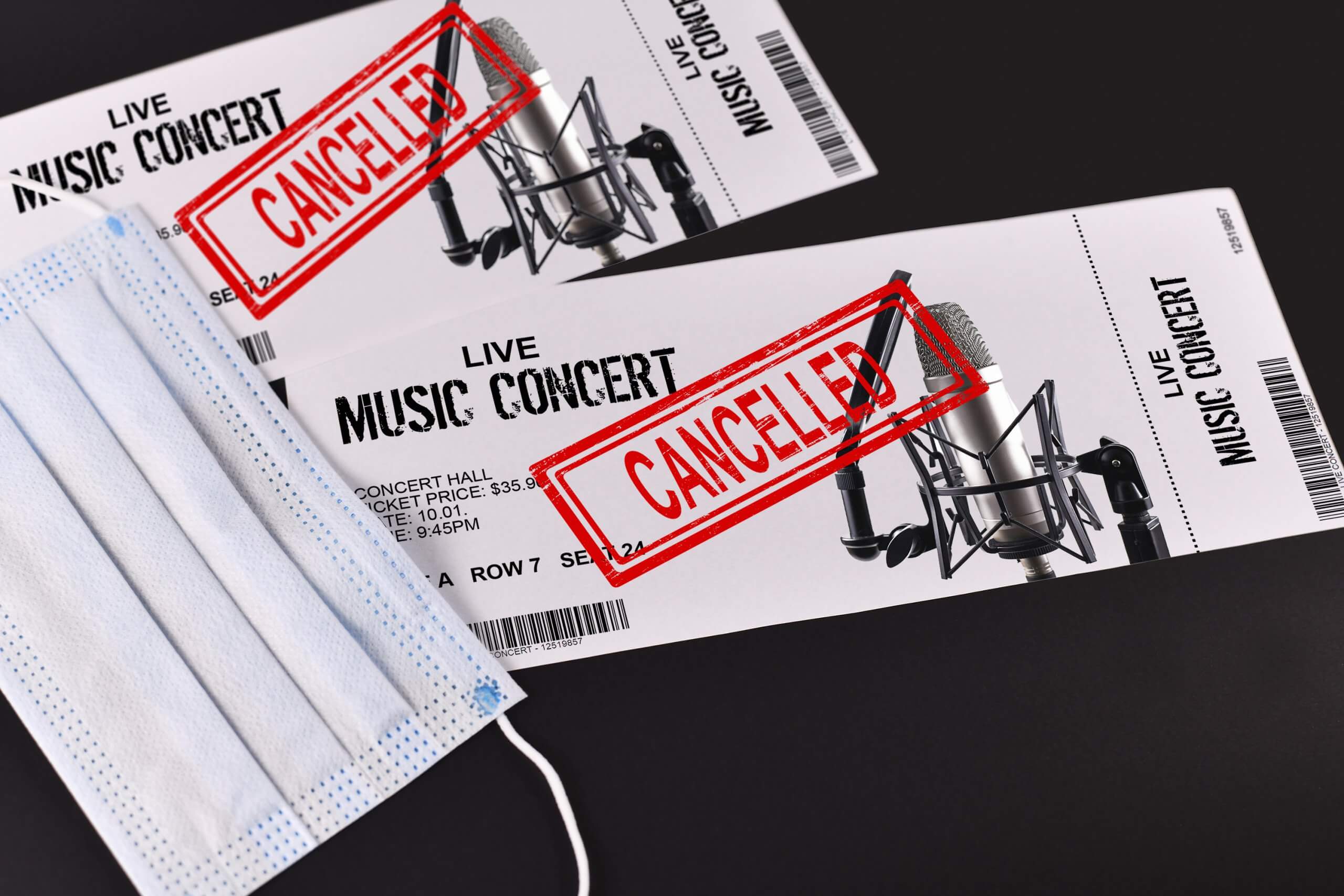Whatever the implications of COVID-19 for daily life in the United States, commercial and legal issues are no longer hypotheticals. Disturbances are already occurring and will continue indefinitely. They will undoubtedly happen on a large scale, particularly in metropolitan areas.
Whether they are production firms, theatre chains, or event management companies, businesses in the entertainment business may face particularly severe consequences. They should begin planning immediately for loss prevention, mitigation, and reaction. Apart from regular due diligence, entertainment organizations should now consider fundamental challenges.

Your Employees
All employers have fundamental responsibilities to their employees regarding workplace safety and dangers. Your company’s operations and local, state, and federal legislation determine the extent of your obligations to employees. Regulatory values are not the only way to express an employer’s responsibilities. The company can utilize them to back up a sort or other employee demands in the case of a work-related injury. COVID-19 hazards that are specific to your personnel. In addition, handbooks and workplace policies, including COVID-19 revisions, should be explicit.
Decrease in Advertising Spending
As a result of supply chain challenges or sales declines, significant companies may reduce their advertising budget. For example, if inventory concerns arise due to supply chain restrictions, consumer packaged goods or manufacturing-related enterprises may reduce ad expenditure rather than risk selling products that are not accessible. According to a poll, 7% had abandoned advertising, and 14% shifted their offline spending to online. According to industry insiders, advertising growth rates in China would drop from 7%, as expected before the epidemic, to 3.9 %.

Consumers may also reduce non-essential purchases, affecting how firms deploy advertising dollars throughout their product selection. Retailers in brick-and-mortar stores will see a reduction in sales.
Insurance
Event cancellation (which may include promoters, artists, sports teams, and event venues), liability, first-party/property, business disruption, health, and workers’ compensation should all be reviewed prospectively by entertainment firms. You should develop internal claim reporting processes as soon as possible to help with timely reporting and insurance reporting clauses. You may offer relevant coverage types via new policy forms issued by the Insurance Services Office or elsewhere to the extent coverage has potentially applicable exclusions.
Lower Spending Outside the Home
Movement restrictions and mass gatherings are to remain in place for a time. As a result, less money will be spent on media methods and commercials aimed at those not at home.
Governments have already imposed restrictions on large-scale social gatherings. As a result, attendance at entertainment venues such as movie theatres, restaurants, and pubs has decreased. For example, in Italy, where more than 9,000 confirmed coronavirus cases have been reported, the government has ordered closing cinemas, theatres, and restaurants containing eateries and stores to keep consumers at least one meter away.

Contract Review
All contracts impacted by COVID-19 (or the associated interruptions and mitigating measures) should be reviewed again. Those joint “force majeure” terms you did not read or ask counsel to examine before signing the event-related contract, for example, should be evaluated by counsel now, not after contract duties are not met.
Interested in Online Media Consumption
Self-isolation and quarantine measures may enhance media consumption in the house as more individuals stay home. Quarantine might lead to more people using entertainment services like video-on-demand and gaming.
According to the Financial Times, when China adopted statewide isolation measures, average weekly app downloads increased by 40% in the first two weeks of February compared to last year. Weekly game downloads on Apple devices increased by 80% in the same month compared to the previous year.
PR/Crisis
Although it may not appear so, COVID-19 is affecting a wide range of businesses. All communications should be straightforward, trustworthy, and accompanied by actions in keeping with the statements.
Bottom Line
Every business is unique, and this article touches on the challenges that entertainment firms should consider. The bottom line for any organization is to view all the risks connected with the confusing COVID-19 issues ahead of time. About Complete Controller® – America’s Bookkeeping Experts Complete Controller is the Nation’s Leader in virtual bookkeeping, providing service to businesses and households alike. Utilizing Complete Controller’s technology, clients gain access to a cloud platform where their QuickBooks™️ file, critical financial documents, and back-office tools are hosted in an efficient SSO environment. Complete Controller’s team of certified US-based accounting professionals provide bookkeeping, record storage, performance reporting, and controller services including training, cash-flow management, budgeting and forecasting, process and controls advisement, and bill-pay. With flat-rate service plans, Complete Controller is the most cost-effective expert accounting solution for business, family-office, trusts, and households of any size or complexity.
About Complete Controller® – America’s Bookkeeping Experts Complete Controller is the Nation’s Leader in virtual bookkeeping, providing service to businesses and households alike. Utilizing Complete Controller’s technology, clients gain access to a cloud platform where their QuickBooks™️ file, critical financial documents, and back-office tools are hosted in an efficient SSO environment. Complete Controller’s team of certified US-based accounting professionals provide bookkeeping, record storage, performance reporting, and controller services including training, cash-flow management, budgeting and forecasting, process and controls advisement, and bill-pay. With flat-rate service plans, Complete Controller is the most cost-effective expert accounting solution for business, family-office, trusts, and households of any size or complexity.




